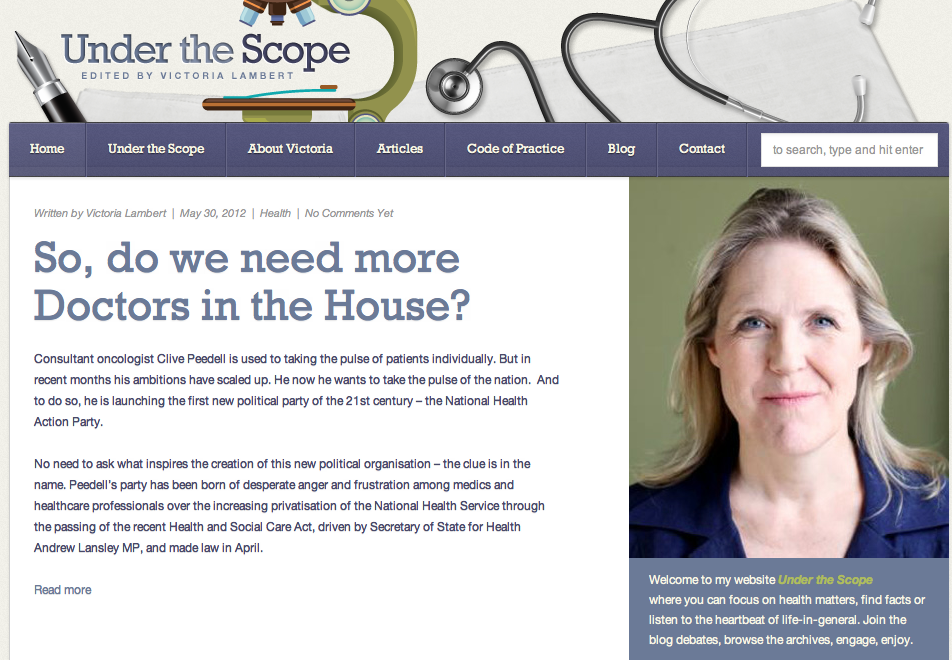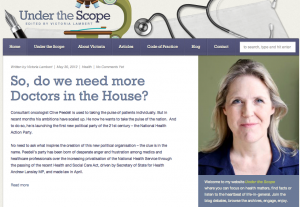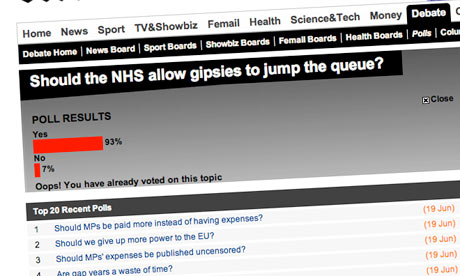As reported on the main site, a number of high profile figures in business and academia have already, or are threatening to, cancel their subscriptions to the Observer, after the paper – the threatened closure of which has been widely reported – cut the weekly column by management expert Simon Caulkin. Below:
(1) Original letter to editors of the Guardian and Observer protesting the decision from over 60 signatories, never published.
(2) Follow-up letter from a key figure in the campaign, Philip Whiteley on behalf of over 80 signatories, questioning the lack of response, never published.
(3) Email reply from Observer editor, John Mullholland.
Hat-tip: Private Eye Issue 1243, August 21 – September 3, page 7, for a story that alerted us to the protest.
Letters in full:
(1) Original letter to editors of the Guardian and Observer
15 June 2009
The Editor
The Observer
Dear Sir
We are astonished and appalled by your decision to drop the Simon Caulkin column just at the point when the ideas he has covered over the years have become more relevant than ever.
We are living through one of the biggest crises of governance in history. September 2008 saw not just the end of Lehman Brothers but the end of 30 years’ dominance of neo-liberalism as the guiding ideology in running major private and public sector institutions. The notion that ‘maximising shareholder value’ can be considered in isolation from society was exposed as a pretence – bad for business as well as for society. The mechanistic strictures of the dominant management orthodoxy, with its dehumanising notion of people as a ‘resource’, its target culture and its opaque lexicon of competences, outputs and so on, have wrought terrible damage in social care, the NHS and education, as well as in the private sector.
Over the past 16 years, one journalist alone has been consistent in exposing the shallowness and limitations of these approaches. Simon Caulkin has set out a coherent alternative, rather than merely channelling protest. The unifying theme of the thinkers that he has championed – W Edwards Deming, Jeffrey Pfeffer, John Seddon, Gary Hamel and others – has been that organisations and economies are best managed by understanding the inter-dependence of different stakeholders.
Your decision, therefore, is ill-judged and ill-timed. A wiser choice would be to elevate Simon’s column to the main section of the paper. There is huge potential in the ideas he has promoted to assist ideological renewal of political parties, as well as to help governance generally.
We hope that you will see this as not just a letter of protest, but as sincere advice to recommend urgently that you reconsider your decision, and retain a vital element of your paper that could continue make a major contribution to policy debate.
Yours sincerely
Ricardo Semler, entrepreneur and author
Andrew Campbell, Director, Ashridge Business School
Philip Whiteley, chair Human Capital Forum
Dennis Tourish, Professor of Leadership and Management, Aberdeen Business School, Robert Gordon University
Susan White, Professor of Social Work, Department of Applied Social Science, Lancaster University
Petra Wilton, Director of Policy and Research, Chartered Management Institute
Joe Lamb, Emeritus Professor St Andrews University
Professor Jonathan Michie, President, Kellogg College, University of Oxford
Susan Scott-Parker OBE, chief executive of the Employers’ Forum on Disability
Professor Chris Brady, Dean, BPP Business School
H. Thomas Johnson, Professor of Business Administration Portland State University, USA
Mark Goyder, Director Tomorrow’s Company
Alistair Mant, Chairman, Socio-technical Strategy Group, Adjunct Professor, Swinburne University of Technology (Melbourne)
Ismail Erturk, Senior Lecturer in Banking, The University of Manchester
Su Maddock, Director Whitehall Innovation Hub
Dave Wastell, Professor of Information Systems, Nottingham University Business School
Gary Kirwan, Senior Employment Relations Adviser, Royal College of Nursing
Howard Clark, The Systems Thinking Review
Jim Standen, Director, Lignum Quality Services
Professor Bob Galliers, Provost and Vice President for Academic Affairs, Bentley University, Massachusetts, USA
Nigel Nicholson, Professor of Organisational Behaviour, University of London
Clive Bone, Chairman, Institute of Value Management
GD Cox
Keith Reader
Professor Anthony Hopwood, Said Business School
Alison Widdup, Managing Director, Better for Everyone
Fred John, Estates Officer, NHS.
Roy Madron, political scientist, UK/Brazil
Dr Richard Howells, Director, Centre for Cultural, Media and Creative Industries Research School of Arts and Humanities King’s College London
Margaret McCartney (Dr) GP and writer
Max Mckeown, Strategist and Leadership Innovation Expert
Sally Garratt, Director Garratt Learning Systems
Bob Garratt, Visiting Professor Cass Business School, London
Andrew Sturdy, Professor of Organisational Behaviour and Associate Dean, Warwick Business School, University of Warwick
Dr Martin Parker Professor of Culture and Organization, Director of Research and Deputy Head of School Editor-in-Chief of ‘Organization’ University of Leicester School of Management Leicester
Dr Gordon Pearson, Keele University
Jan Gillett, Chairman PMI
Dr. Mihaela Kelemen, Professor of Management Studies
Ian Christie, Associate, Green Alliance, Visiting professor, Centre for Environmental Strategy, University of Surrey
John Carlisle, Visiting Professor Sheffield Hallam University, Founder, Cooperation Works Ltd and the Intlizyo AIDS Trust, South Africa
Morice Mendoza, editor and writer
Dr Olivier Sykes, Department of Civic Design, University of Liverpool
Ron Glatter, Emeritus Professor of Educational Administration and Management, The Open University
Bob Bischhof, Chairman – Vitalize Health Products, Non Executive Director – Henderson Eurotrust Plc, Member of Board – German British Chamber of Industry and Commerce
Dr Paul Hodgkin, Chief Executive, Patient Opinion
Alastair Mitchell-Baker, Director Tricordant Ltd
Adam Hogg, Managing Director, (Retired) Conquest Inns
Simon Hollington, Director, Leading Edge Personal Development Ltd
Dr Philip McGovern, Programme Leader – Technology Management Programmes ITT
Neela Bettridge, Founding Partner, Article 13
John Orsmond, Chairman Data Vantage Group
Peter Medway
Paul H Ray, sociologist, USA
Tim Pidsley, director Tricordant, New Zealand
Dr Timothy Wadsworth, NHS
Dr Bruce Tofield, University of East Anglia
Warwick Mansell, freelance journalist and author Education by Numbers: the Tyranny of Testing
Professor Tom Keenoy, The University of Leicester School of Management
Bill Cooke, Professor of Management and Society, Lancaster University Management School
Dr Leslie Budd AcSS MCIT MCILT, Reader in Social Enterprise, Open University
Ken Starkey, Professor of Management and Organisational Learning, Nottingham University Business School
(2) Follow-up letter from a key figure in the campaign, Philip Whiteley, on behalf of 80 signatories
29 June 09
Dear Mr Rusbridger, Mr Mulholland
We write to register a double protest over the unjustified decision to drop the Simon Caulkin column, and your refusal to acknowledge the wave of anger that this decision has provoked.
Some 60 distinguished figures, including some of the most influential people in the world of business and management education, jointly signed a letter condemning your decision. You did not publish this, nor even give any of us the courtesy of an acknowledgment. In addition to this jointly signed correspondence, we know that over 200 people have individually registered their protest. The only letter to appear was mildly expressed. In short, you have seriously misled your readers over both the nature and extent of the protest, and of the support that Simon commands.
The Guardian/Observer has a strong tradition of respecting and upholding the principle of freedom of speech and dissent, so we find it shocking to be denied a space for an entirely legitimate argument, made by some of your (previously) most loyal and long-standing subscribers.
Doubtless you have made this move on business grounds; but you appear to have made no calculation of the business consequences of this decision. The supporters of this campaign are not just any readers, but long-standing subscribers who have passed on the habit of reading the Guardian/Observer to friends, colleagues, children and (given the number of professors and authors co-signing) to students and readers also, but who are now reconsidering their loyalty.
Questions of governance and management do not constitute a side issue to those of economics and politics: quite the reverse. It is the culture of management that has led to chronic waste in the public sector and the banking crisis in the private sector. Simon Caulkin possesses a deep understanding of the underlying causal factors of these crises.
Since we began this campaign, the extent of the protest has grown, as can be seen by the extended list of signatories to this letter.
If there is a necessity to drop pages, we urge you to move Simon’s weekly contribution to the main section of the paper.
Yours
Philip Whiteley
On behalf of over 80 signatories (see list below)
Cc
Will Hutton
Polly Toynbee
Dan Roberts
Liz Forgan
Signed by:
Ricardo Semler, entrepreneur and author
Andrew Campbell, Director, Ashridge Business School
Philip Whiteley, chair Human Capital Forum
Dennis Tourish, Professor of Leadership and Management, Aberdeen Business School, Robert Gordon University
Susan White, Professor of Social Work, Department of Applied Social Science, Lancaster University
Su Maddock, Director Whitehall Innovation Hub
Petra Wilton, Director of Policy and Research, Chartered Management Institute
Joe Lamb, Emeritus Professor St Andrews University
Professor Jonathan Michie, President, Kellogg College, University of Oxford
Susan Scott-Parker OBE, chief executive of the Employers’ Forum on Disability
Professor Chris Brady, Dean, BPP Business School
H. Thomas Johnson, Professor of Business Administration Portland State University, USA
Professor Christopher Grey, Head of Industrial Relations and Organizational Behaviour Group, Warwick Business School
Mark Goyder, Director Tomorrow’s Company
Alistair Mant, Chairman, Socio-technical Strategy Group, Adjunct Professor, Swinburne University of Technology (Melbourne)
Hilary Wainwright, Co-editor Red Pepper magazine, Fellow Centre for Participation Studies, Bradford University
Ismail Erturk, Senior Lecturer in Banking, The University of Manchester
Charlie Hedges, Chartered Geologist
Dave Wastell, Professor of Information Systems, Nottingham University Business School
Professor Martin Parker, University of Leicester
Gary Kirwan, Senior Employment Relations Adviser, Royal College of Nursing
Howard Clark, The Systems Thinking Review
Jim Standen, Director, Lignum Quality Services
Professor Bob Galliers, Provost and Vice President for Academic Affairs, Bentley University, Massachusetts, USA
David Davies, Director Didero Ltd
Nigel Nicholson, Professor of Organisational Behaviour, University of London
Clive Bone, Chairman, Institute of Value Management
GD Cox
Professor Anthony Hopwood, Said Business School
Alison Widdup, Managing Director, Better for Everyone
Fred John, Estates Officer, NHS.
Roy Madron, political scientist, UK/Brazil
Dr Richard Howells, Director, Centre for Cultural, Media and Creative Industries Research School of Arts and Humanities King’s College London
Max Mckeown, Strategist and Leadership Innovation Expert
Sally Garratt, Director Garratt Learning Systems
Bob Garratt, Visiting Professor Cass Business School, London
Andrew Sturdy, Professor of Organisational Behaviour and Associate Dean, Warwick Business School, University of Warwick
Dr Martin Parker Professor of Culture and Organization, Director of Research and Deputy Head of School Editor-in-Chief of ‘Organization’ University of Leicester School of Management Leicester
Dr Gordon Pearson, Keele University
Jan Gillett, Chairman PMI
Dr. Mihaela Kelemen, Professor of Management Studies
Ian Christie, Associate, Green Alliance, Visiting professor, Centre for Environmental Strategy, University of Surrey
John Carlisle, Visiting Professor Sheffield Hallam University, Founder, Cooperation Works Ltd and the Intlizyo AIDS Trust, South Africa
Morice Mendoza, editor and writer
Dr Olivier Sykes, Department of Civic Design, University of Liverpool
Ron Glatter, Emeritus Professor of Educational Administration and Management, The Open University
Bob Bischhof, Chairman – Vitalize Health Products, Non Executive Director – Henderson Eurotrust Plc, Member of Board – German British Chamber of Industry and Commerce
Dr Paul Hodgkin, Chief Executive, Patient Opinion
Alastair Mitchell-Baker, Director Tricordant Ltd
Adam Hogg, Managing Director, (Retired) Conquest Inns
Simon Hollington, Director, Leading Edge Personal Development Ltd
Dr Philip McGovern, Programme Leader, Technology Management Programmes, Institute of Technology, Tallaght, Dublin, Republic of Ireland
Neela Bettridge, Founding Partner, Article 13
John Orsmond, Chairman Data Vantage Group
Peter Medway
Paul H Ray, sociologist, USA
Tim Pidsley, director Tricordant, New Zealand
Dr Timothy Wadsworth, NHS
Dr Bruce Tofield, University of East Anglia
Professor Tom Keenoy, The University of Leicester School of Management
Bill Cooke, Professor of Management and Society, Lancaster University Management School
Dr Leslie Budd AcSS MCIT MCILT, Reader in Social Enterprise, Open University
Ken Starkey, Professor of Management and Organisational Learning, Nottingham University Business School
Kieran Doyle, General Manager Production at Sulzer Pumps UK Ltd
Dr Luke Mitcheson, Consultant Clinical Psychologist
Paul Buxton, Policy Officer, Crawley Borough Council
Roger Evans
Martin Meteyard (former Chair, Cafedirect plc)
Christopher Bird Owner, IT U Consulting Group
Laurence Barrett Associate Management Consultant
Paul Hodgkin Chief Executive at Patient Opinion
Bob Birtwell Tutor at University of Surrey
Andrew Campbell Director at Ashridge
Kathy Sheehy Williams Programme Manager at WEA
Rob Worth
Natascha Wolf, self-employed writer
Paul Summers, Corporate Programme Manager, Portsmouth City Council
David Kauders, Partner, Kauders Portfolio Management
Dave Kerr, Business Improvement Manager, Atkins
Paul Barratt, PMBprod
Kate Gott, PhD Student, Brunel Business School
Kevin Cryan, Analyst at DHL
Donal Carroll Associate at Open University Business School & Director at Critical Difference
Tim Casserley, Discovery Alliance & Edge Equilibrium & Author
Emma Langman, Head of Business Improvement at E Squared Thinking Ltd and Visiting Fellow in Systems at University of Bristol
(3) Reply from Observer editor, John Mullholland (by email)
1 July 2009 [by email]
Dear Phil Whiteley
Thank you for your letter and I must apologise for the delay in responding.
Simon Caulkin is a tremendous writer and his column has added enormously to our understanding of British business and management. For these reasons, the decision to lose the column was not taken lightly. It followed much discussion and only after exploring many different options did we reluctantly conclude that we had to take this course of action.
As you will doubtlessly appreciate, this was just one of a host of difficult decisions we have had to make in order to reduce costs across the newspapers at Guardian News and Media.
Newspapers and media groups are experiencing the most difficult trading conditions imaginable. Not only are we suffering, like everyone else, from the catastrophic fallout from the credit crunch in terms of severely reduced advertising revenues but, additionally, our industry is under structural assault from digital media which is causing enormous disruption to our business models.
In these circumstances, we are having to make extremely difficult decisions many of which have caused real anguish as we seek to cut costs. I do hope that Simon can continue to have a relationship with the paper and that we can continue to publish his writing from time to time. Should the economic climate change, then perhaps we can revisit the issue.
Thank you for taking the trouble to write and I completely understand your sense of loss but hope you can appreciate the dilemmas we are facing.
Yours sincerely
John Mulholland
Editor
The Observer




